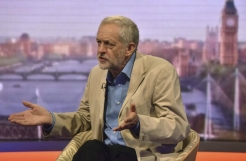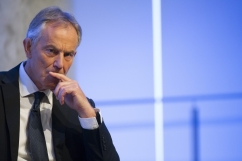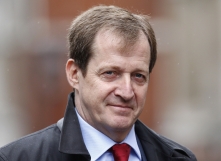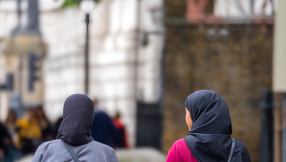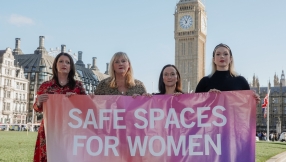In March 2003 Tony Blair persuaded a heated House of Commons to vote for British forces to join the US in invading Iraq. The move was highly controversial because it came less than two years after the atrocities of September 11, 2001, and appeared to be a reaction to that event despite there being no obvious link between the New York attacks and Saddam Hussein's Iraq.
We know from published sources, including books by the journalist Bob Woodward, that George W Bush's Secretary of Defence Donald Rumsfeld and Vice President Dick Cheney were searching for an Iraq link immediately after 9/11, and also that President Bush told Blair four times in the build up to the war that he didn't need British troops, yet Blair was insistent on paying the "blood price".
9/11 is the crucial context to the Iraq war because it is believed that Blair decided on that day to commit to doing whatever Washington wanted, effective handing British foreign policy to the US. Initially the British prime minister sought a second UN resolution and pushed for Europe to come on board but when it became clear this was not possible he pressed ahead anyway.
Criticism of British involvement in the Iraq war has so-far centred around claims by the government that Saddam had 'weapons of mass destruction' [WMD] that posed a threat to the west, and were, in the words of one colourful London Evening Standard headline at the time, "Just 45 minutes from attack".
However, equally important is the question of when exactly Blair committed to military action, as we shall see.
What is the Chilcot Inquiry?
The Iraq Inquiry, known as the Chilcot Inquiry, has been a long time coming. Set up under Gordon Brown in June 2009, it began taking evidence in November 2009, concluding that process in February 2011. It is finally published on Wednesday.
The inquiry has been chaired by Sir John Chilcot, a former civil servant, and its website states that: "[The] purpose of the Inquiry is to examine the United Kingdom's involvement in Iraq, including the way decisions were made and actions taken, to establish as accurately and reliably as possible what happened, and to identify lessons that can be learned. The Inquiry is considering the period from 2001 up to the end of July 2009."
The remit means that the aftermath of the war -- in which 179 British troops had died by February 2009, 4,491 US service members were killed by 2014, and countless Iraqis since 2003 -- will be examined.
The other members of the panel are academic and author Sir Lawrence Freedman, former diplomat Sir Roderic Lyne, and Deputy Chair of the British Council, Baroness Usha Prashar. One other member of the panel, the academic and military historian Sir Martin Gilbert, died in February 2015.
The report cost £10m and is reportedly over two million words long. It was meant to be published by the end of 2011 and the long delay has attracted widespread, cross-party criticism, including from prime minister David Cameron.
Is Chilcot the first inquiry into Iraq?
No. Chilcot is the third British inquiry relating to the Iraq invasion. In January 2004 the Hutton inquiry published its findings into the death of weapons scientist Dr David Kelly, who apparently committed suicide in July 2003 after becoming embroiled in a row between the BBC and the government over reports into alleged misuse of intelligence on WMD. Although the report raised very valid criticisms of the way in which the BBC handled its reporting, it was widely dismissed as a 'whitewash' in favour of the government.
In July 2004 the Butler inquiry into the use of intelligence found that claims about WMD were "seriously flawed" and "open to doubt". But the report found no evidence of "deliberate distortion" of the intelligence material or of "culpable negligence".
Why is the timing of Blair's decision to join the invasion crucial?
Of all the thousands of documents the inquiry is expected to examine, one stands out: the 'Manning memo' of 14 March 2002.
A full year before the invasion which was presented as an if-all-else-fails, last-minute decision, Blair's foreign policy advisor David Manning wrote to Blair after dining with Condoleezza Rice, Bush's National Security Adviser. He wrote:
We spent a long time at dinner on Iraq. It is clear that Bush is grateful for your support and has registered that you are getting flak. I said that you would not budge in your support for regime change but you had to manage a press, a Parliament and a public opinion that was very different than anything in the States.
Yet in February 2003, on the eve of war, Blair said:
I detest [Saddam's] regime, but even now he could save it by complying with the UN's demands.
If the inquiry is to retain any credibility, it must, at the very least, provide authoritative answers about this contradiction.
What will happen to Blair?
Many people are expecting (and hoping) that Blair will be the focus of the inquiry's criticisms. A clue that he will be came when it was recently reported that Alastair Campbell, Blair's former director of communications, has not received a letter from the inquiry team.
Only individuals who have received details of the criticisms will face scrutiny, it is believed. (Blair's former foreign secretary Jack Straw, for example, is among those believed to be facing heavy criticism.)
However, those wanting Blair to be tried as a war criminal look set to be disappointed as a report at the weekend said that prosecutors at the International Criminal Court have ruled out such a move.
Nonetheless, MPs from the Scottish National Party [SNP] and the Labour left are reportedly preparing to use an ancient law to impeach Blair, effectively barring him from public office in the UK.
What will we really learn from Chilcot?
Despite it being longer than Leo Tolstoy's War and Peace, it is possible that we will not learn much that is new from Chilcot's report. We know that Blair had effectively signed up to the invasion by 2002, and that his staff and intelligence figures colluded to exaggerate and simplify evidence of the threat Saddam allegedly posed. Instead of re-running that debate, Chilcot may have chosen to focus much of his criticism on the aftermath, widely accepted, even by Blair, to have been woefully unplanned.
However, some argue that Iraq was the biggest British foreign policy disaster since the Suez disaster of 1956, and unless it comes in for strong, clear and comprehensive criticism, the Chilcot inquiry will do nothing to restore faith in British politics, itself currently in crisis.
What has been said in relation to God and the invasion of Iraq?
As early as October 2003, Rowan Williams, then Archbishop of Canterbury, told relatives at a service of remembrance for dead military personnel at St Paul's Cathedral that US and UK leaders will be "held to account" over the invasion. With Blair looking on, he added: "We have to go back and test what has happened in the light of the original vision; we have to find out what we have learned, what now looks different, where our integrity has been stretched or challenged."
In March 2006, Blair himself told the interviewer Michael Parkinson: "Well, I think if you have faith about these things, then you realise that judgment is made by other people." Pressed further, he added: "If you believe in God, [the judgment] is made by God as well."
In the US, the former McCormick Theological Seminary President Susan Brooks Thistlethwaite wrote in the Washington Post on the war's ten-year anniversary that it was a "moral, fiscal and geopolitical disaster for the United States," which "broke the rules of war by ignoring them or so completely 're-defining' them that they lost their meaning."
At the same time, the Florida pastor and peace activist Craig Watts wrote in Red Letter Christians that the Iraq invasion was "immoral and unjust" and that "only those who view the world through the thickest ideological lens and those who have benefited the most economically claim the war was 'worth it.'"










